Capitalize On Unlikely Sources
You’re an expert in your own right, but there are resources in your own backyard that could make your garden center look better and increase your draw for customers with an expanded knowledge base. Are you in the know?
You don’t need to be an economist to know the business of garden centering has grown tougher. As a smart garden center owner, you’ve adapted. You’re likely offering high-value items, capitalizing on the grow-your-own herb and veggie craze, carrying lower inventories and being more frugal with your own staffing. Check, check, check, check. You might even be thinking, “Short of being a magician, what else can I do?” As more and more American families tighten their budgets and reevaluate how they allocate their disposable income, spending on home accents and décor, landscape services and garden center goods continues to decline.
The good news is this: Despite the crunch, your loyal customers place a high priority on their outdoor living spaces and likely won’t be disappearing any time soon. But that doesn’t mean there’s no room for improvement. During the lull, do your homework. Prepare for the next wave of spending by educating yourself on some outside resources: Local and national botanical gardens and local extension programs can give you some great ideas on how to improve your customers’ experience and, inevitably, your business’ bottom line.
Botanical Gardens
“Botanical garden” conjures up images of near perfection: mature, well-maintained, well-thought-out gardens bursting with color, texture, purpose and serenity.
Many botanical gardens are government-funded entities; thus, they do not ebb and flow with the economy. As a result, they’re focused on “the experience” for their visitors, creating magic in the gardens and inspiring customers to emulate what they’ve seen. Their gardens are impossibly large for the typical homeowner, who typically craves a small-scale version as an escape from the humdrum. How do you emulate this serenity in your garden center? Could you do more?
Do you have a calendar of events? Does it consist of more than six or seven items, and are several of them annual events with a significant customer draw? The changing face of a botanical garden keeps its clientele returning event after event. Sure, you need to settle into your niche and cater to your target demographics, but don’t get too comfortable. Always reach for the next audience with new themes and experiences, such as “Orchid Extravaganza,” “Wake Up Your Garden,” “Butterflies in the Garden,” “Spring Blooms” and “Scents of the Garden.” These are popular themes that offer plenty of creative flexibility to provide a dynamic experience in your garden center.
What type of gardening education do you provide? Many botanical gardens have well-developed educational sessions targeting kids and garden beginners. Don’t forget to reach out to the “curb appeal” segment with sessions meant to increase a home’s value. On the advanced end of the spectrum are the Master Gardeners. Are you providing education to attract this segment, too?
On the must-see list for botanical gardens: Chanticleer Gardens in Wayne, Pa., The Butchart Gardens in Victoria, B.C., Denver Botanical Garden in Colorado, Fairchild Tropical Botanical Garden in Miami, Longwood Gardens in Kennett Square, Pa., and one of my hometown favorites, Harry P. Leu Gardens in Orlando. However, there is likely much to learn from any botanical garden, so take the time to explore those located near you or in areas where you travel.
Extension
Another great wealth of information waiting to find a place in your garden center can be found at your local extension service. Each U.S. state and territory has an office at its land grant university, and a network of local or regional offices are armed with knowledgeable professionals who can provide useful, practical and research-based information.
Most land grant universities administer a Master Gardener program. These individuals can enhance your garden center’s efforts by working as staff or as volunteers in your garden center. Adding their knowledge to your lineup of staff expertise can be a great benefit.
Many extension personnel are willing to help expand your employees’ knowledge base. With the latest information on pests and diseases pertinent to your area, agents can help your staff or customers! properly identify them and recommend both product and non-product solutions for problems. They can also serve as a model for customer relations. Your employees should be encouraged to mimic agent knowledge and behavior. The more solutions you’re able to provide your clients, the more likely they’ll be to return to tap into your staff’s knowledge and pay a premium for the increased level of expertise.
Your land grant universities are also a great source for industry research. Local agents are typically up to date on the latest projects and findings, so take advantage of their expertise in this arena to stay ahead on the latest pests and diseases threatening the plants you sell, for example.
Consumer extension agents are also charged with providing education to the public. In this light, if you’ve developed a close relationship with your agent, you can work hand in hand with them to cross-promote their classes and your garden center. You could even host them at your location!
To source your state’s land grant university and extensions near you, visit csrees.usda.gov/Extension.
Take time now, before the economy rebounds fully, to expand your horizons, from garden center design ideas outside the box to your staff’s expertise and knowledge base. You’ll reap the benefit in increased knowledge and sales; you’ll be left wondering why you didn’t take the time to do it earlier!
SIDEBAR: EXPAND YOUR HORIZONS
There’s no time like the present to get started! Join other garden center professionals June 27 to 30 in sunny Florida for Fun, Sun and Magic at the Garden Centers of America 2010 Summer Tour!
Starting with an evening welcome reception at the Walt Disney World Contemporary Resort, the tour includes inspiring stops at:
- Kerby’s Nursery & Garden Center
- Earthscape Garden Rooms
- Rock City Gardens
- Busy Bee Nursery
- Everything Outdoors
- Rockledge Gardens
- Ron Jon Surf Shop
- Lukas Nursery & Butterfly Encounter
- Apenberry’s
- Palmer’s Nursery
- Local Florida producers: Deroose Plants, Hermann Engelmann Greenhouses
Special evening tour features include an evening at the Kennedy Space Center Museum and dessert at Epcot while enjoying the evening laser light show. For complete tour details, visit www.gardencentersofamerica.org.
Sponsorship opportunities for plant and product suppliers are also available. Contact Shanan Molnar at [email protected].
SIDEBAR: PROMOTIONAL STRATEGIES
There is much to learn from other gardening experts. Theme parks recognize and emulate the botanical garden ambiance on a larger scale. Park guests may actually feel as if they’ve been transported to another place or time simply with well-placed props, mood lighting, appropriate music and well-thought-out plant selections. Visit places like Epcot during the Epcot International Flower & Garden Festival; the Walt Disney World Animal Kingdom; and Sea World’s Discovery Cove for quality food for thought as you examine your own garden center experience.

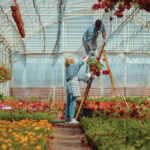

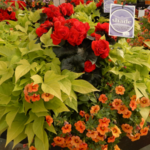


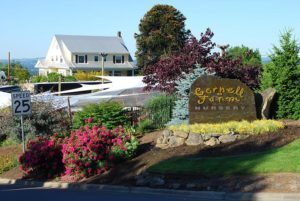
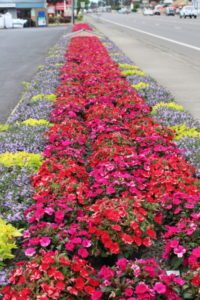
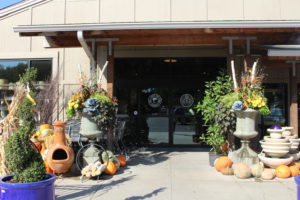

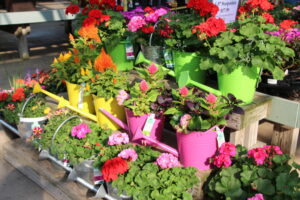
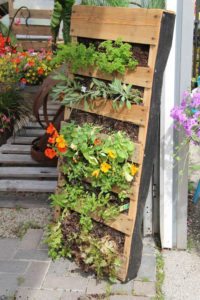
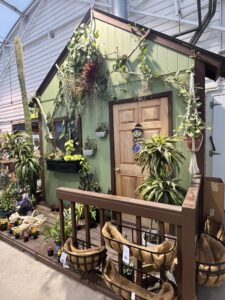
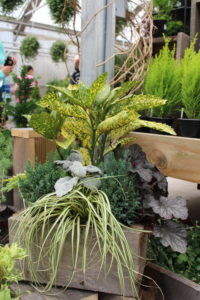
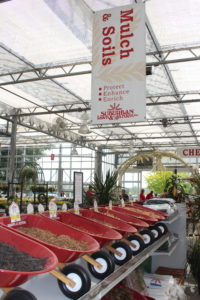
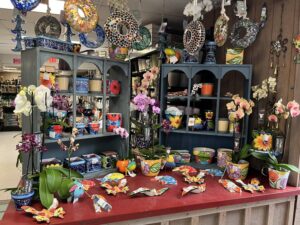

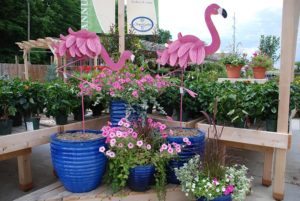
 Videos
Videos





